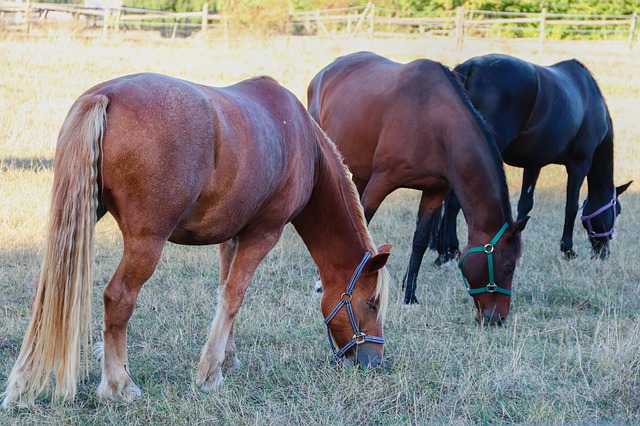
Parasites are a common problem in horses. They can cause serious health conditions. Deworming is a good preventative measure for horses. It can help control these parasites and improve their health.
There are many different deworming strategies available. One common way is deworming by fecal egg count (FEC). You might have already tried using it. But what are the factors that we need to know and consider in deworming by FEC?
Facts about fecal egg count (FEC)
- The effect of deworming by FEC is primarily to minimize environmental contamination, not to optimally protect the individual.
- FECs have limited capacity to detect parasites.
- they only reflect adults that are actively laying eggs at the time of the test
- egg-laying activity may vary seasonally
- tapes often missed because eggs are laid in packets/segments, not evenly mixed in the manure
- can’t detect tissue forms or immature stages in the lumen but these can be the most harmful for the host
- bots missed
- pinworms missed (lay their eggs on the perianal skin)
- Strongyloides in adults not detected
- FECs have technical limitations.
- Samples sent through the mail are useless.
- Samples not collected as soon as they are passed then kept cold are likely inaccurate.
- There is growing evidence that the practice of only deworming by FEC is leading to reemergence of Strongylus vulgaris – “bloodworms.” These are the large Strongyles which do significant damage to the intestine and arterial system when they are migrating.
Deworming Resistance
Resistance can develop when the parasites that are treated with deworming agents become resistant to the drugs.
According to parasitologists the major way resistance develops is underdosing. What doesn’t kill them makes them stronger. Frequent exposure can cause a dewormer to go from a 20% failure rate to 80% or higher.
It’s also true they can’t be fully resistant to a drug they have never been exposed to.
Deworming Products
It’s wise not to attempt to deworm your horse with drugs that are known to have widespread resistance. This includes as follows:
- Ivermectin
- Moxidectin
- Pyrantel
- Fenbendazole
- Albendazole
Deworming Schedule
How often does a horse need to be dewormed? The best way is to speak to your vet about developing a program that is optimal for your individual horse.
Deworming is an important part of horse care. A strategic deworming plan can help to protect your horse from parasites and keep them healthy. There are many different deworming products on the market, so be sure to talk to your veterinarian about which one is best for your horse.
Recommended Product:
https://myhorsesupplies.com.au/product/diamond-x-vpc-gut-health-prebiotic/
Reference:
https://drkhorsesense.wordpress.com/2022/07/05/deworming-strategy/
Image by Manfred Richter from Pixabay
